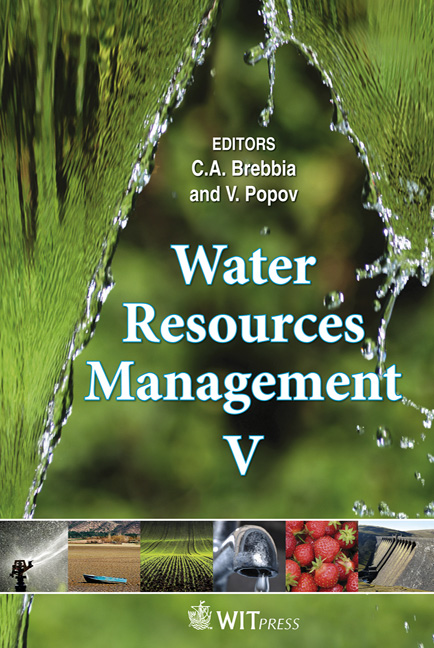A New Plotting Position Concept To Evaluate Peak Flood Discharges Based On Short Samples
Price
Free (open access)
Transaction
Volume
125
Pages
13
Page Range
415 - 427
Published
2009
Size
457 kb
Paper DOI
10.2495/WRM090371
Copyright
WIT Press
Author(s)
M. M. Portela1 & J. M. Delgado2
Abstract
A model to improve the estimates of the peak flood discharges given by the statistical analysis applied to small samples of annual maximum instantaneous discharges, Qami, is presented. The model combines a new probability plotting position technique – by means of a sorting operator, SO – with the Gumbel law with parameters evaluated by the least square method. It should be stressed that other statistical laws compatible with the previous parameter estimation method should be possible. For a given watershed, the SO modifies the rank of each element of the sample of Qami by taking into account the magnitude of the floods in a nearby watershed where more records are available. The two watersheds must belong to the same homogenous hydrologic region and must be geographically close in order to be valid to consider that the extreme flood events in both watersheds are likely due to the same extreme rainfall events. The results achieved showed that the model allows for better estimates, especially when applied to short samples, as those more often provided by the Portuguese network of stream gages. Keywords: flood analysis, probability plotting position, sorting operator, least square method, Gumbel law.
Keywords
flood analysis, probability plotting position, sorting operator, least square method, Gumbel law





